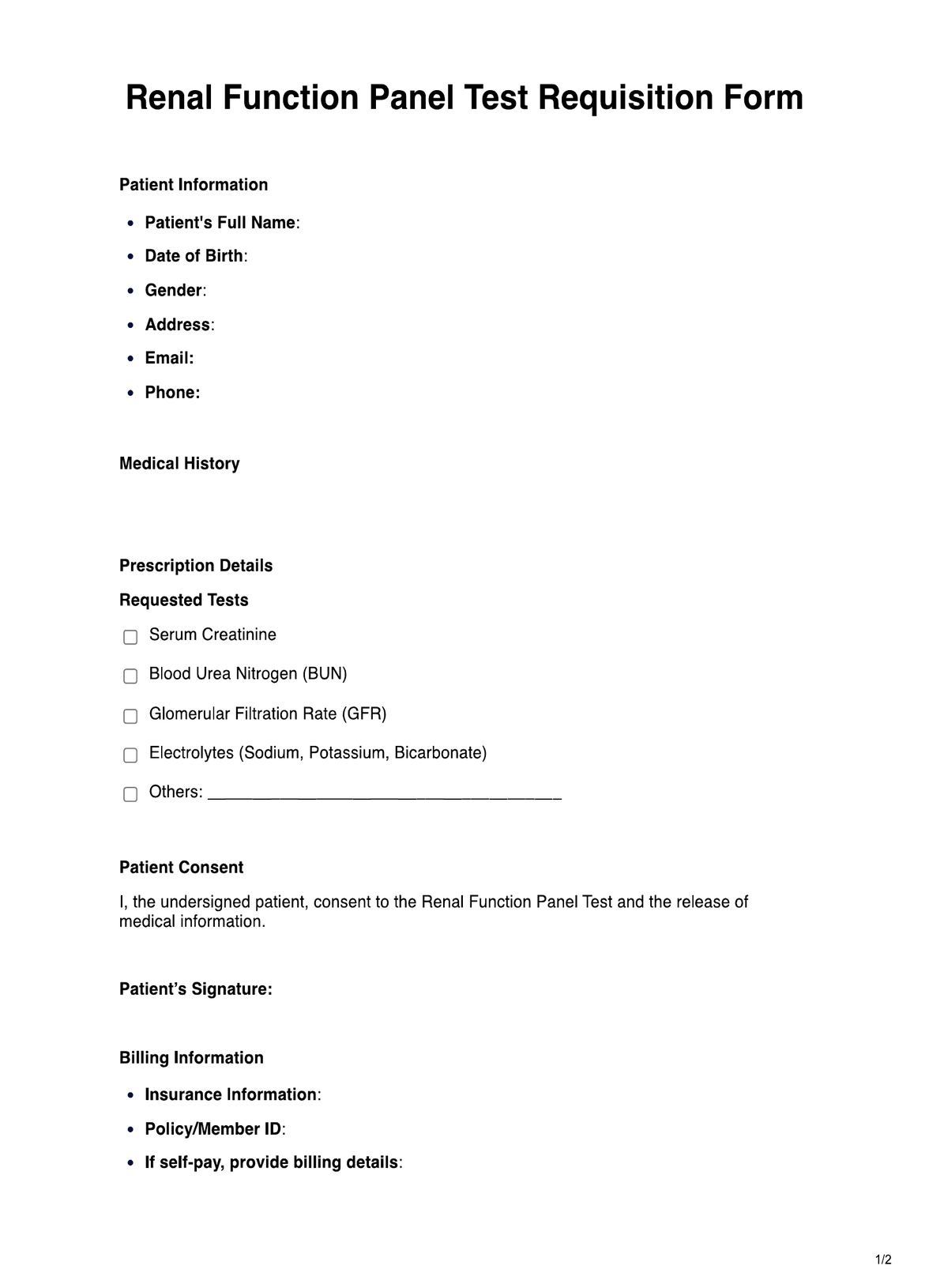Healthcare providers, such as primary care physicians, nephrologists, and specialists, typically request Renal Function Panel Tests for patients.

Renal Function Panel
Comprehensive Renal Function Panel Test - Assess kidney health with expert insights. Make informed healthcare decisions.
Use Template
Renal Function Panel Template
Commonly asked questions
Renal Function Panel Tests assess kidney function and diagnose kidney-related conditions. They are employed in routine check-ups, diagnosing kidney diseases, monitoring treatments, and emergencies.
A healthcare provider prescribes the test, and a patient provides a blood sample. The sample is sent to a laboratory for analysis. The healthcare provider then reviews the results to assess kidney health.
EHR and practice management software
Get started for free
*No credit card required
Free
$0/usd
Unlimited clients
Telehealth
1GB of storage
Client portal text
Automated billing and online payments











